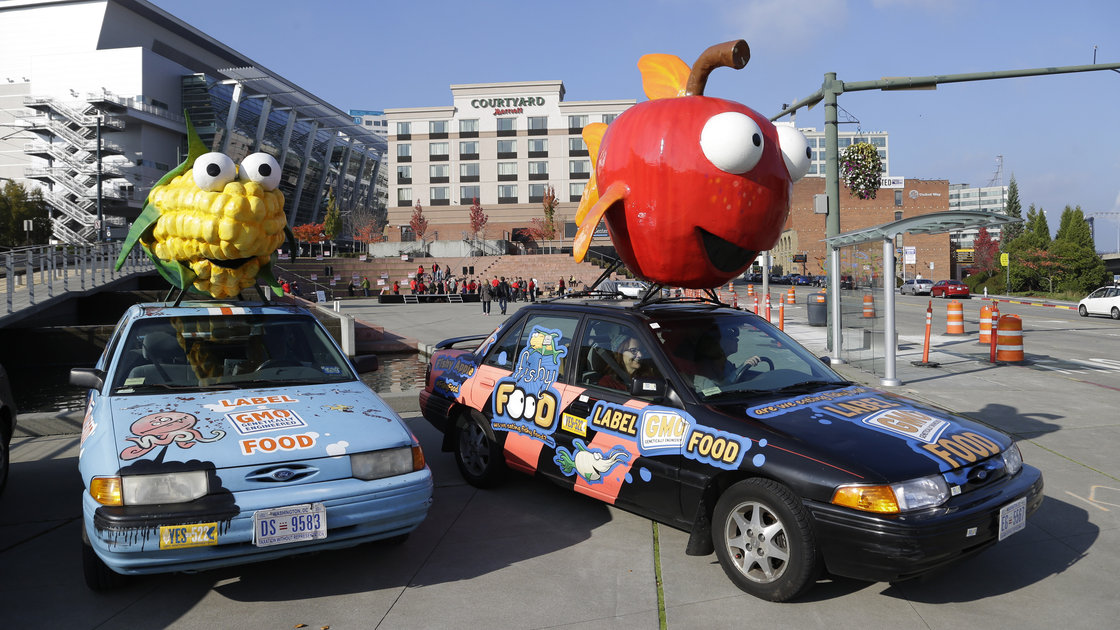
Post by Eliza Barclay and Martin Kaste, The Salt at NPR Food (11/7/13)
Voters appear to have defeated another attempt to require labels on genetically modified foods in Washington state. In early counts, the "no" campaign has what appears to be an insurmountable lead with 54 percent of votes.
The ballot initiative would require labels on the front of packages for most food products, seeds and commodities like soy or corn if they were produced using genetic engineering.
The push to require labeling had strong support in the polls a couple of months ago. But as the TV ad war heated up over the last few weeks, popular opinion swung against the idea of a mandatory GMO label on most groceries.
Out-of-state companies such as Monsanto, Coca-Cola, PepsiCo and Nestle poured millions into the campaign against labeling, which argued that adding GMO designations would make food more expensive, and confuse consumers. In ads, they said the labels would increase the price of food for a three-person household by $350 to $400 a year.